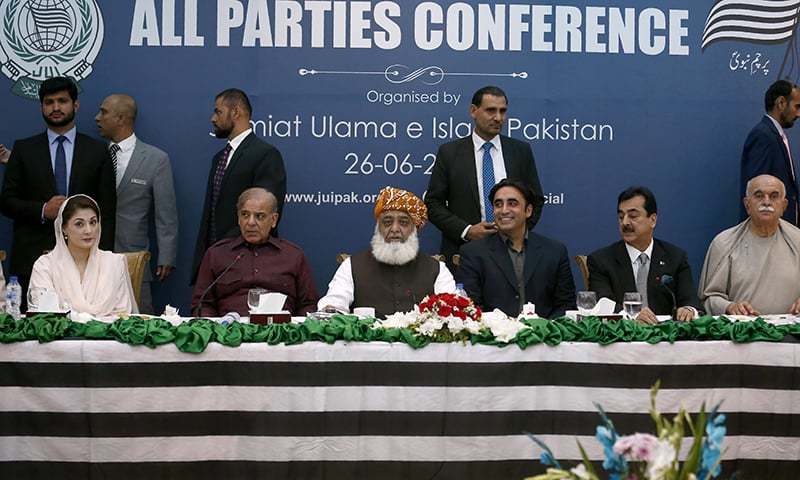The rise of Pakistan Democratic Movement under PM Khan’s rule

Advertisement
From raging opposition protests, international criticism, severe human rights violations, and the COVID-19 pandemic, the year 2020 has proved to be a difficult period for Pakistan.
Prime Minister Imran Khan’s government has also faced resounding criticism for poor administration to handle the growing public crisis.
Amidst all the issues, the Pakistan Tehreek-e-Insaf (PTI) government’s actions have led to a unified opposition force never seen before in the country’s history – the Pakistan Democratic Movement (PDM).
In September this year, 11 major opposition parties collaborated with each other to form the PDM, with one objective – to oust Imran Khan’s government and restore democracy in the country.
This is the first time that major opposition parties and the public have come together against the Pakistani establishment, which has been running the country since its independence.
The alliance members demanded the resignation of PM Khan and his top aide Lt Gen (Retd) Asim Saleem Bajwa over allegations of corruption and further announced a three-phased movement against the federal government, including massive nationwide protests and a ‘decisive long march’ towards Islamabad in the coming month.
What has given the movement more coverage is the participation of notable opposition leaders and children of former Prime Ministers Nawaz Sharif and Benazir Bhutto – Pakistan Muslim League-Nawaz (PML-N) Vice President Maryam Nawaz Sharif, and Pakistan Peoples’ Party (PPP) Chairman Bilawal Bhutto-Zardari respectively.
Meanwhile, Maulana Fazlur Rehman was named as the head of the alliance in early October.
Despite the government’s several attempts to silence the unified voices of the opposition, the PDM organised their first power show in Gujranwala on October 16, targeting Imran Khan’s poor governance and the impacts it had on the economy, and the atrocities committed by the Pakistani army.
The second public gathering in Karachi on October 18 saw Maryam, Bilawal, Fazlur Rehman and Pashtun leader Mohsin Dawar among other leaders rallying the public against Khan’s ‘dictatorial’ rule and Pakistan Army’s influence on the government.
The alliance went on to hold many more anti-government rallies in Quetta, Peshawar, Multan and Lahore. The PDM concluded the year’s final public rally in Larkana on December 27, on the occasion of Benazir Bhutto’s death anniversary.
During these rallies, the opposition reiterated their stance that Imran Khan’s “illegitimate” administration had aggrieved the public and affected education and health of the country, while earlier in December the alliance announced on en masse resignation from national and provincial assemblies.
On the other hand, the Pakistan government did not shy from resorting to extreme steps to suppress the voice of the opposition, while making several arrests and openly attempting to block the rallies from taking place.
In one instance, Maryam’s husband Safdar Awan was arrested after the second PDM jalsa. After his arrest, Maryam and former Sindh Governor Muhammad Zubair said that the IGP Sindh, Mushtaq Mehr, was ‘kidnapped’ by Army Rangers, who had forced him to file an FIR for Safdar’s arrest. This development created extreme bitterness among the police officers, who retaliated by submitting leaves of absence. Safdar was later released on bail.
Ahead of the movement’s planned long march to Islamabad, it would be interesting to see how the unison would play a role in the downfall of Imran Khan’s government in the coming year.
Advertisement






